Bodybuilding Myths, with Muscle Building Quotes
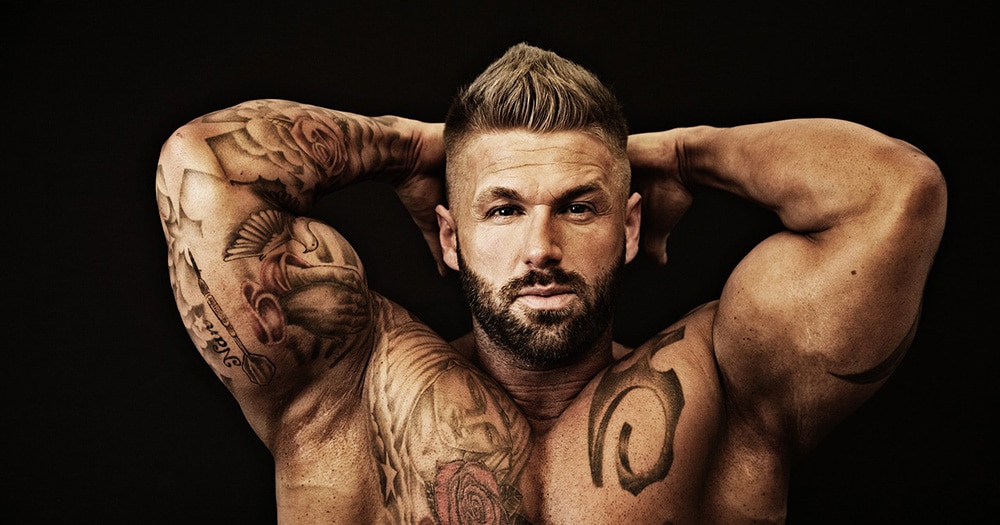
Every culture has its myths and bodybuilding is no exception. Like most myths, most are nine parts fantasy and one part truth. Though, of course, some muscle building myths have no truth to them at all.
I have spent much of my career attempting to expose myths surrounding bodybuilding and topics that relate to it, such as drugs, nutrition and supplementation, etc.
For example, one of my more popular articles that was published “back in the day” in Muscle Media was entitled “Nutritional myths that won’t die”, which focused on myths surrounding protein and athletes. Classics such as “athletes don’t need additional protein” and “high protein diets are bad for you” as well as others were covered and debunked.
This article is not about one topic or myth, but random myths that float around and never seem to die. It’s intended to be tongue-in-cheek to be sure. But it’s still a serious attempt to combat various myths that have little or no truth behind them. Quotes about muscle building are added for impact.
Some of these myths are generated inside the bodybuilding community and some are generated outside the community, by the general public and or medical community. These are in no particular order, so let’s start with a classic.
Myth 1. Your muscles will turn to fat if you stop working out

This is a classic used by those looking for excuses for why they have not started an exercise program and resent those that have. My own mother used to say that to me as a kid when I joined a gym at 14.
There is no physiological mechanism by which muscles magically convert to fat when one stops working out for some reason. What happens, however, is that many of the gains in muscle mass will be lost from the lack of stimulation.
It’s not exactly earth-shattering news that people who don’t exercise and eat above maintenance calories get fat. So what you have is often a loss of muscle and an increase in body fat due to a lack of exercise coupled with excess calories.
Use it or lose it. If you don’t use your muscles, they’ll turn to fat.
Unknown
The next time you see someone who used to be buffed but is now fat, it’s not because his or her muscles some how converted to fat. They are fat for the same reason millions of others are fat: too many calories, not enough activity.
Regardless, what if it were true? That is, is the fear of this mysterious muscles to fat conversion a reason to not start a weight training program? If you stop brushing your teeth, the result is (drum roll) cavities, but that’s not a legitimate reason to never start brushing your teeth!
I have gained and lost many pounds of muscle over my life time, and have worked with countless people in all phases of their life. I have yet to see any muscles convert to fat. This myth of tissue alchemy needs to die now. I have however seen plenty of people who stopped working out and got fat.
Myth 2. Pros eat ‘clean’ all year round

This myth can be blamed squarely on the bodybuilding publications. They want the readers to think their heroes eat low fat healthy “clean” foods year round.
The myth has often led to newbie types attempting to get all the calories they require for growth from baked chicken, rice and vegetables. Of course getting, say, 4000 plus calories (or more) from such foods is virtually impossible.
The reality of trying to build up on lean foods often leaves newbies confused and depressed. They find they’re not making any appreciable gains by attempting to stuff themselves to death with foods that are low in calories. It’s very difficult to get 4000, 5000, or even 6000 calories a day from chicken and rice.
Now for the reality: off-season I have sat across the table from many a pro eating cheeseburgers, pizza, and apple pie. I know one pro who used to pull over anytime he saw a Taco Bell.
Nutrition is the most important part of achieving your goals in the gym. Abs are made in the kitchen, not the gym.
Unknown
Big people require plenty of calories and calorie-dense foods are the only way to get them. As the late, great Dan Duchaine once said regarding off-season eating for growth, “Don’t feel bad you ate a cheeseburger, feel bad you didn’t eat three!”
Now I can’t comment on every pro’s diet as I don’t know them all, and I am sure some of them have cleaner diets then others off-season. However, make no mistake: the articles you read about what pros eat off-season and what they really eat are often two different things.
As sort of an ancillary myth, most pros will carry more body fat than they claim off-season when trying to gain new muscle mass. Telling people they eat at Taco Bell and are above single-digit body fat levels does not sell magazines or supplements. So it pays to perpetuate the myth that they are hard as nails all year (with a few exceptions) and always eat “clean”.
Myth 3. Bodybuilders are not strong
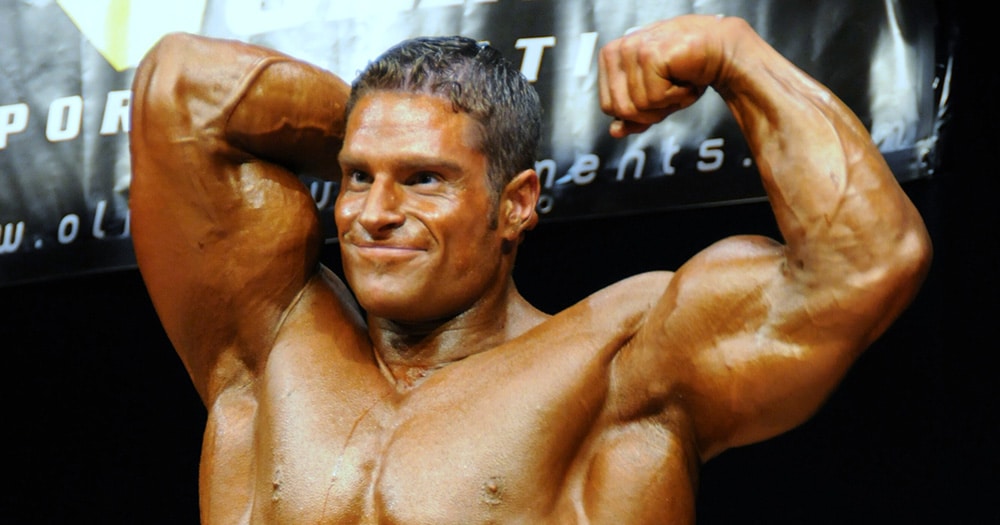
Only people who have never stepped into a gym make such stupid statements. Strength varies greatly person to person of course. But some bodybuilders are very strong with 800lb squats and 500lb bench presses not uncommon.
Bodybuilders are among the strongest athletes in the world, pound for pound. We may not be able to lift as much as powerlifters, but we have to lift weights that are just as heavy while holding poses and flexing muscles at the same time.
Unknown
I have seen people using weight that had to be seen to be believed: 600lb front squats for reps, incline bench presses with 500lbs for reps, and seated presses with 400lbs for reps, etc. No, not all bodybuilders are nearly that strong, but any bodybuilder worth his salt is still considerably stronger then the average person.
Some bodybuilders compete in both power lifting and bodybuilding and often do well in both. Yes, some bodybuilders are not as strong as they look, but some are much stronger then they look, and some are crazy strong.
Myth 4. Bodybuilders can’t fight
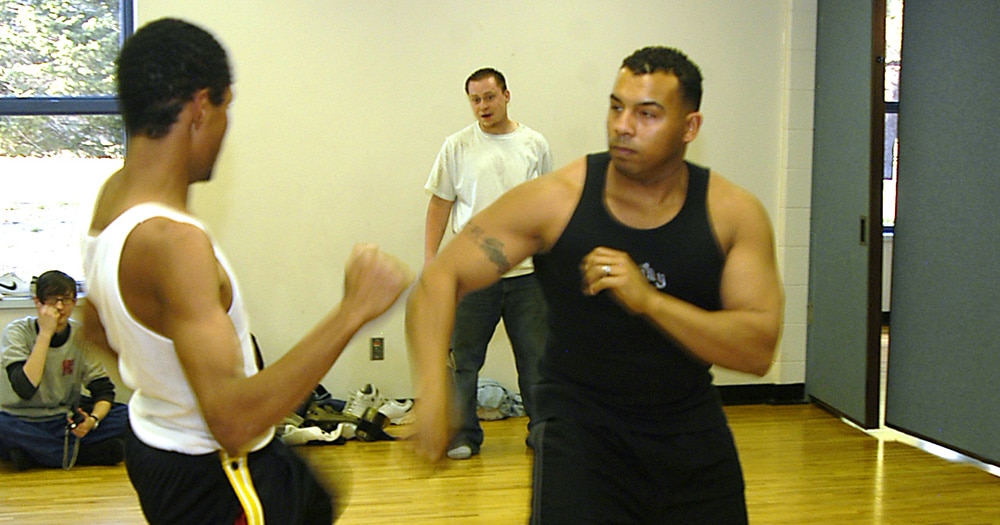
I’m not going to give much space to this myth other then to say bodybuilders are like everyone else: some are tough SOB’s and some are cream puffs with most somewhere in the middle. No different than the general public.
Don’t let the muscles fool you. Just because a bodybuilder has big muscles doesn’t mean they can fight.
Unknown
I have seen a few of the tough SOB variety in action. Conversely, I was at a gym-sponsored cookout some years ago where this huge bodybuilder decided to hassle this guy half his size. Problem was, the guy happened to be the state kick boxing champion and proceeded to beat the snot out of the bodybuilder in front of a few hundred people. The lesson here is: don’t judge a book by its cover, and don’t get into fights!
Myth 5. Bodybuilders are all gay
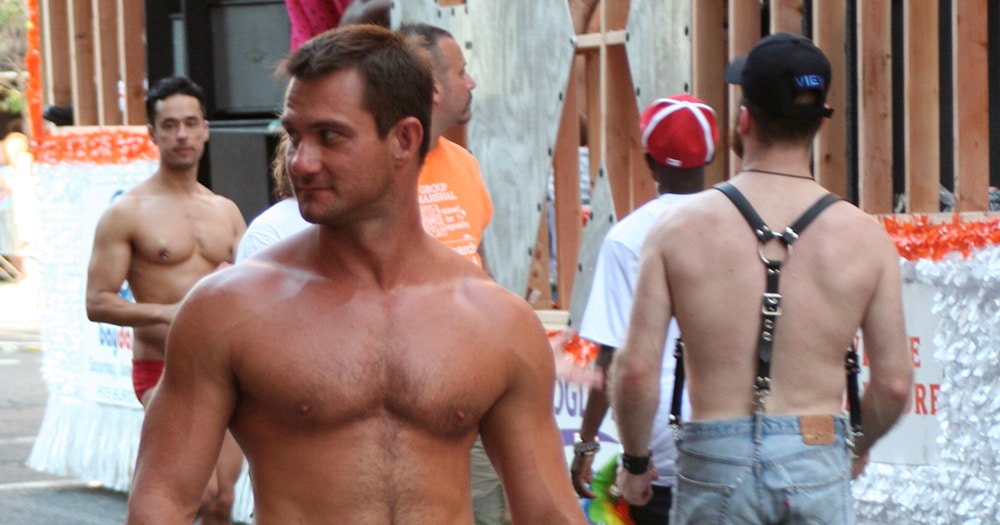
As with the last myth, this one does not warrant much space. It’s my experience the bodybuilding community is gay as often as the general public. No more, no less, and how much muscle a person has does not seem to affect the rate one way or another. It’s a stupid myth that should be put to rest for good.
Myth 6. Anyone can look like a bodybuilder with enough drugs
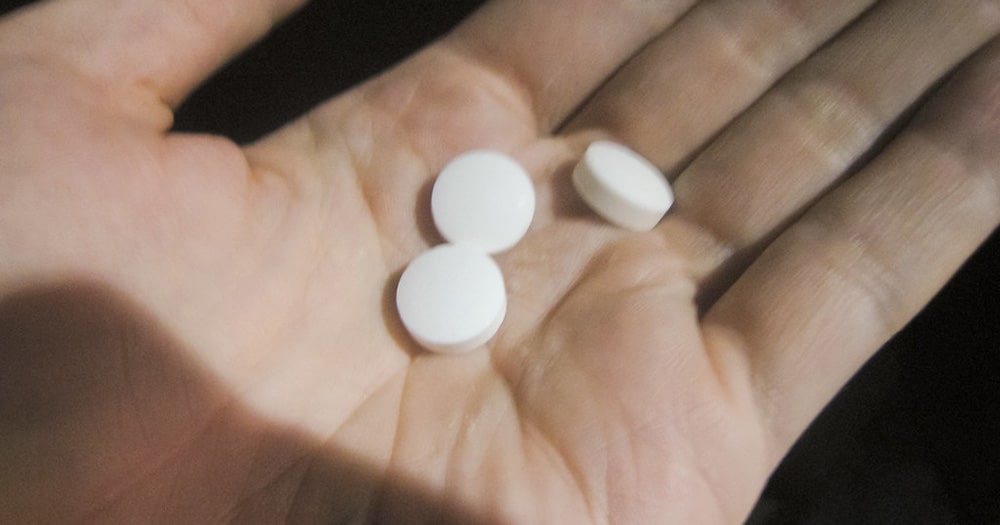
If this were true, people in gyms all over the world would look like pro bodybuilders. The major difference between a high level bodybuilder and everyone else is their genetics, the one thing they have no control over.
Your genetics are the foundation for your physique, but it is up to you to build the house.
Unknown
Yes, drug use is a fact of life in bodybuilding and many other sports, and yes, nutrition and training play a role. But, if you don’t have the genes for it, all the steroids in the world won’t get you anywhere near to looking like the people you see in the magazines.
Unfortunately, every gym has those people using doses of drugs higher than many pros and still look like crap. Make no mistake: drugs work and clearly add an advantage to athletes who use them. But the difference between them and you is that they chose the right parents!
Myth 7. Bodybuilders are all narcissistic
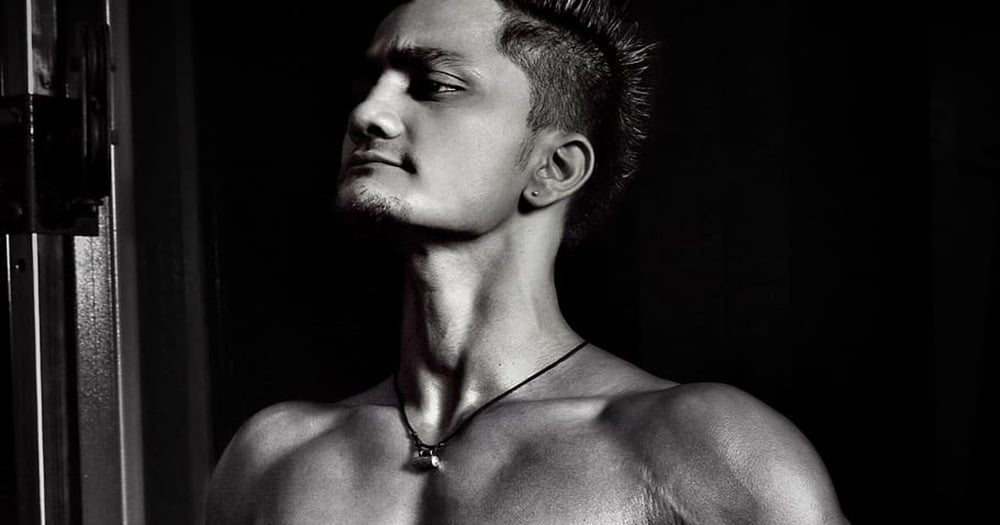
Well OK, this one has a ring of truth to it. Truth be known, bodybuilders can be some of the most narcissistic people you will ever meet, but they are not all that way.
Bodybuilding is the only sport where the judges are looking for the perfect narcissist.
Unknown
Some are humble, down-to-Earth people. But let’s be honest, some narcissism is par for the course in bodybuilding. Enough said there.
Myth 8. Bodybuilders are compensating for small penises
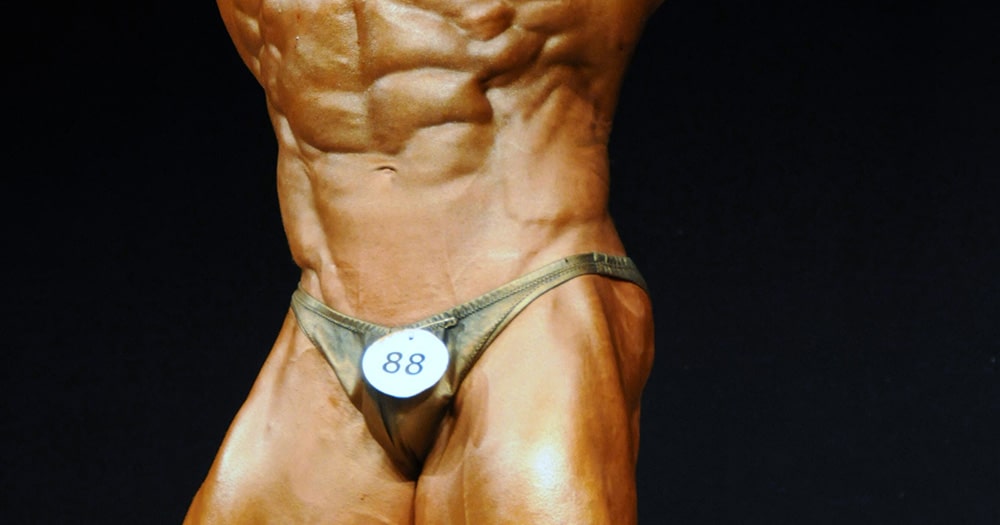
How many times have we heard this dumb myth? Clearly, this one is directed at the male bodybuilders. Truth be known, I have not seen that many bodybuilders’ manly muscle missiles, but it’s been my impression they tend to be like every other man in that dept.
Some are big, some small, while most are in the middle or “normal.” One caveat, however, is that a big guy with a normal-sized member will look smaller then a skinny guy with a normal sized member. It’s all in the proportions.
Myth 9. Steroids don’t work
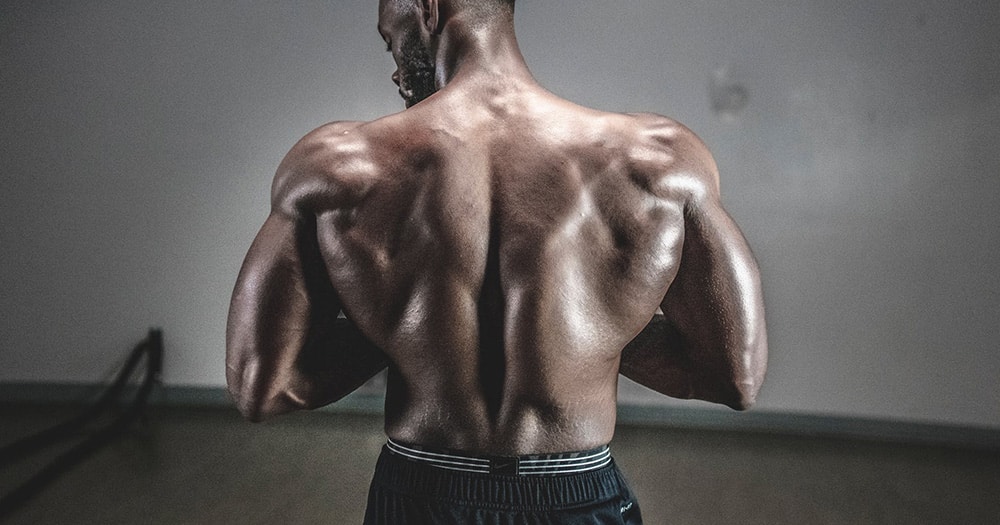
If you believe that one, you are mistaken. There’s a bunch of steroid-related myths I could list. But this is not a steroid article, so I won’t bother.
Anabolic steroids may build muscle, but they also destroy your health. The risks are just not worth it.
Unknown
Anabolic steroids, which are synthetic versions of the male hormone testosterone, can help to increase muscle size and strength. These drugs work by increasing protein synthesis in the body, which helps to build and repair tissues, including muscle tissue. For a plain-language overview of risks and side effects, see anabolic steroid risks.
Non-medical use of anabolic steroids can carry serious health risks, including heart, liver, hormonal, fertility, and mental health effects. In many places these drugs are regulated or prescription-only, and using them without medical supervision can be dangerous.
Myth 10. I don’t want to lift weights because I might get huge
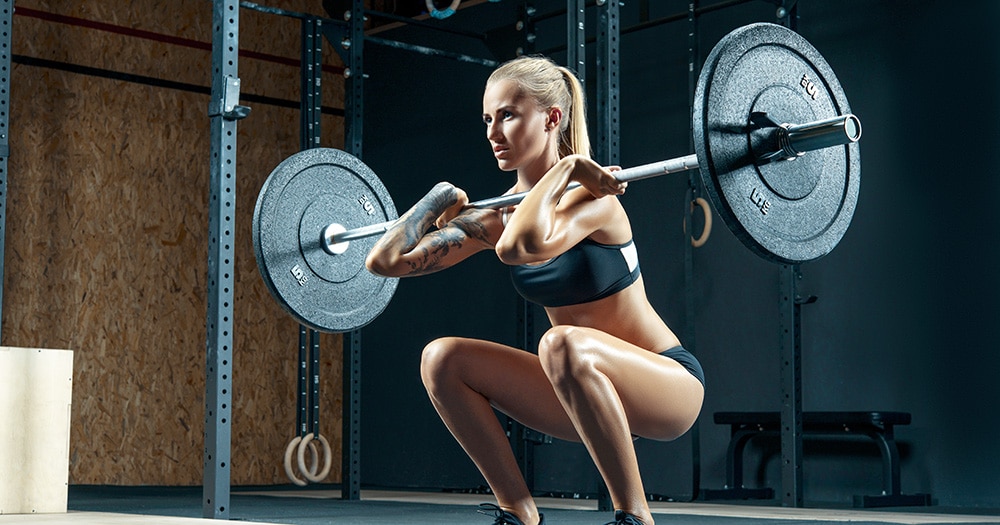
This one tends to be uttered by women, but I have heard men say it also on occasion. It’s a pitiful excuse for not exercising.
I don’t want to be a bodybuilder, but I do want to be strong and healthy. It’s about balance.
Unknown
As discussed above, very few people have the genetics to achieve even above normal levels of muscle mass, much less get “huge.” 99.9% of you reading this will be lucky to put on some muscle, and even that will take years of hard work.
It’s not like anyone ever woke up one day bulging with muscles they didn’t expect. And if you are one of those rare people who put on muscle relatively easily? Lucky you!
Myth 11: No pain, no gain
It’s unnecessary to experience pain to make progress in your workouts! The saying “no pain, no gain” is often associated with the idea that pushing through pain and discomfort is necessary for achieving results in the gym. However, this saying is somewhat of a myth.
Delayed onset muscle soreness (DOMS) is a common type of muscle soreness that occurs after a workout, especially if you’re just starting a new exercise routine or trying a new activity. DOMS typically occurs 24 to 48 hours afterwards and can last for up to 72 hours. You get a feeling of stiffness and tenderness in the muscles.
Muscle soreness is a normal part of the muscle building process. Embrace it and keep pushing yourself to reach your goals.
The cause of DOMS is not fully understood, but it is thought to be related to microscopic tears in the muscle fibers that occur during exercise. These tears are a normal part of the muscle building process and are typically repaired by the body, leading to increased muscle strength and size.
But pushing through pain can actually be counterproductive and increase the risk of injury. It’s important to listen to your body and respect your limits. If you experience pain or discomfort during a workout, stop the exercise and seek medical attention if necessary.
Let’s work out using correct information
Well there you have it; the major myths in bodybuilding (hopefully) debunked. Those were the ones I’ve seen/heard most frequently.
If you think I missed one, feel free to let me know and perhaps I can add it to this article at some point. I don’t want to see anyone turned off to the great endeavor that is bodybuilding.
Like all sports or life styles, bodybuilding has its dark side. However, bodybuilding can be a very healthy, productive, and fun way of life that pays major dividends. So don’t avoid it because of myths and disinformation. See you in the gym!
About the Author: Will Brink
Will Brink has over 15 years experience as an author, columnist and consultant to the supplement, fitness, bodybuilding, and weight loss industry and has been extensively published. Will graduated from Harvard University with a concentration in the natural sciences and is a consultant to major supplement, dairy and pharmaceutical companies.
His often ground breaking articles can be found at BrinkZone.com and in publications such as Lets Live, Muscle Media 2000, MuscleMag International, The Life Extension Magazine, Muscle n Fitness, Inside Karate, Exercise For Men Only, Body International, Power, Oxygen, Penthouse, Women’s World and The Townsend Letter For Doctors.
Will was a former high level trainer with a rep for getting Olympic athletes, bodybuilders and fitness stars into shape and has gained a reputation for being a no “BS” industry insider who’s not afraid to reveal the lies and hype found in the fat loss , muscle building & supplement industry.
He has been co author of several studies relating to sports nutrition and health found in peer reviewed academic journals, as well as having commentary published in JAMA. William has been invited to lecture on the benefits of weight training and nutrition at conventions and symposiums around the U.S. and Canada, and has appeared on numerous radio and television programs.
He is the author, of Bodybuilding Revealed which teaches you how to gain solid muscle mass drug free and Fat Loss Revealed, which reveals exactly how to get lean , ripped and healthy completely naturally. Both e-books come with access to his private forums and numerous tools to aid you in either endeavor.
This article is an adapted version of Will’s post that is available here: https://brinkzone.com/body-building-myths-that-must-die/

Engage in regular resistance training to gain muscle. And be consistent. Building muscle requires consistency in your training and nutrition. Stick to a regular exercise routine and to eat a balanced diet that supports your athletic goals.
Hey Will. Fantastic article! There are so many misconceptions about bodybuilding out there and I like how you addressed a variety of myths rather than the usual (nutrition and steroids). I always laugh when I hear people talk about bodybuilders “muscles are for show and not for go.” Every situation is different, but anyone who is an athlete has an edge up on someone who isn’t; whether it’s fighting, lifting, or running.